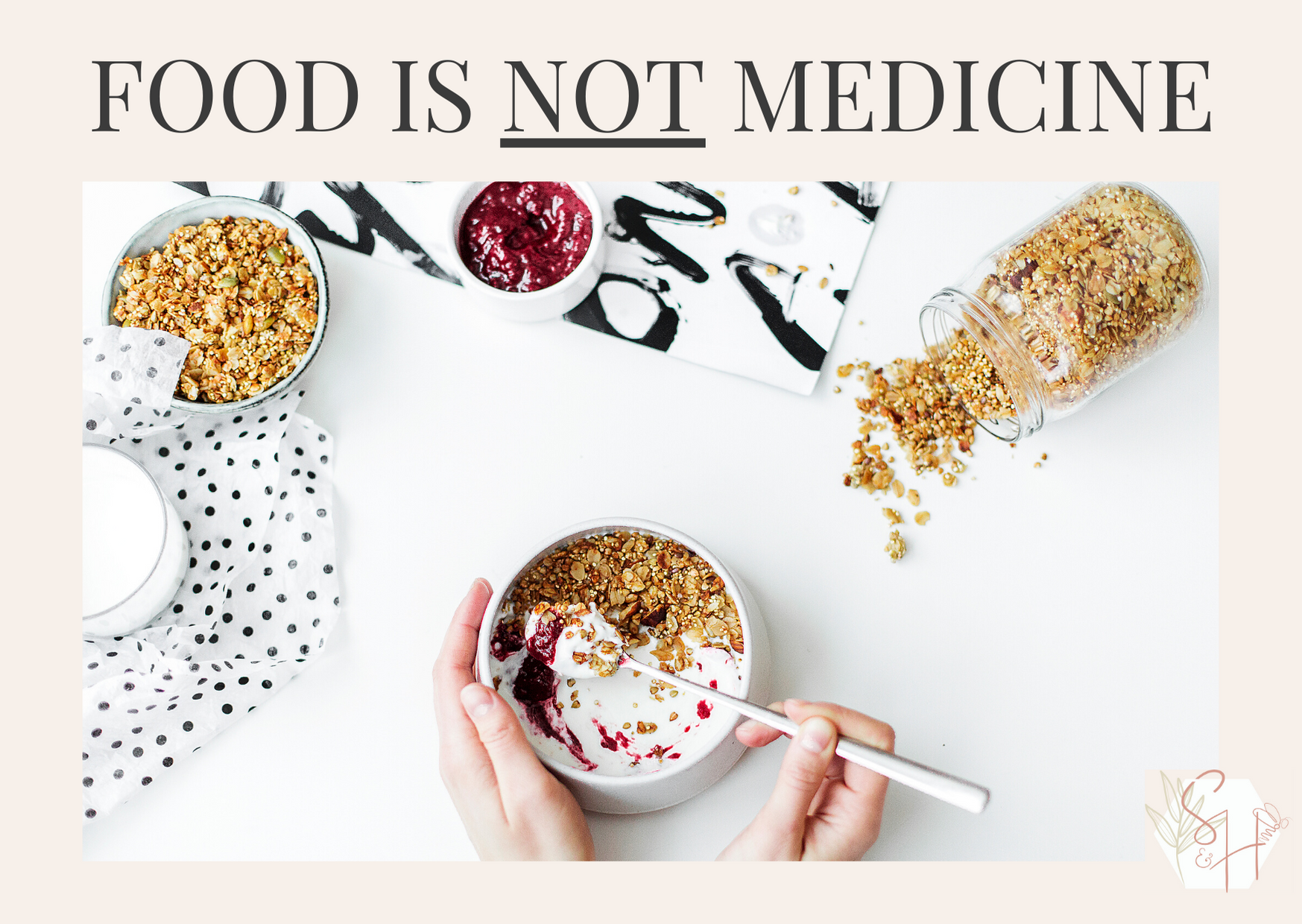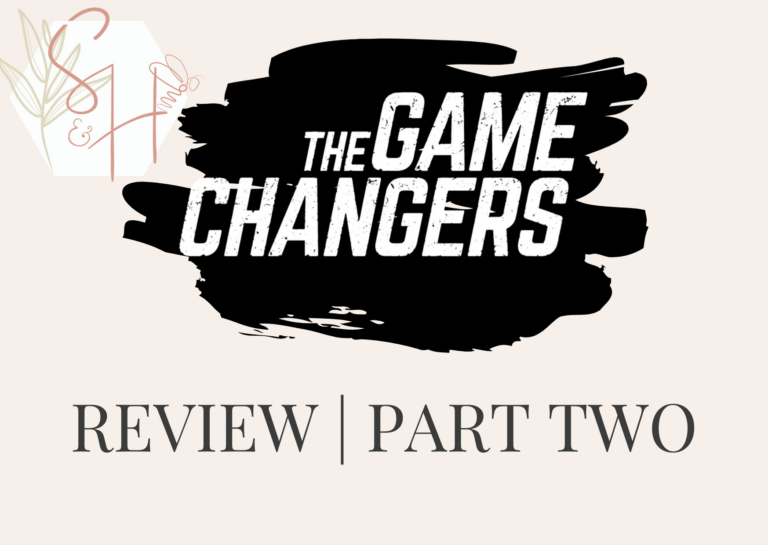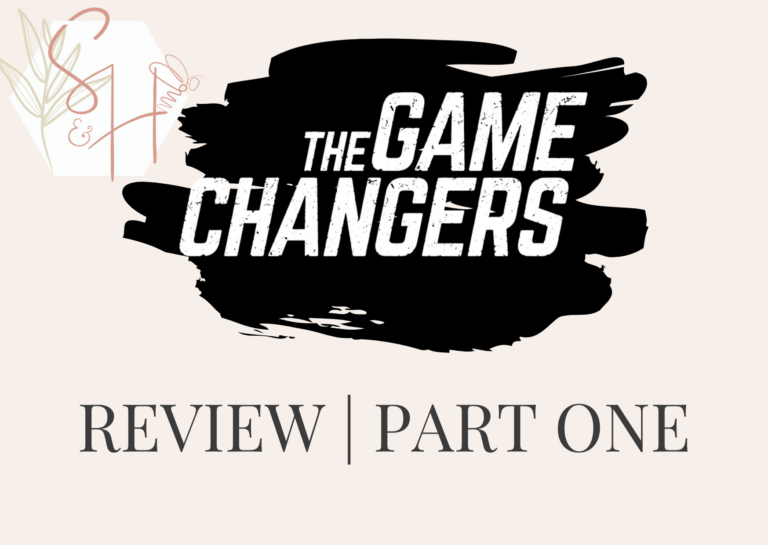So today, I’m discussing a rhetoric that’s much loved in the world of Instagram by “health and wellbeing gurus” and, for some reason, many Insta-doctors as well. Interestingly, you will not hear it uttered amongst registered nutritionists and dietitians, which I hope would tell you something about its’ validity.
I feel very passionately about addressing this issue because, contrary to what some may believe that there’s no harm in believing food is medicine, I strongly believe that there is huge potential for harm. With the current global pandemic that’s currently going on, if there was ever a time to tackle it, it’s now.
I want to highlight that, while there are exceptions, most people who use this rhetoric probably mean well and are simply speaking from a place of gross misunderstanding. However, as a health professional and/or someone with a social following, you have a huge responsibility to your followers and to the general public to ensure your messages are (a) valid and (b) well-communicated. If something is meant with the best of intentions but is constantly misconceived, then it’s time to drop it. Otherwise, you need to accept full responsibility for how your message is received, no matter your intent. While there will always be people who will take a message wrong or more literally than they should, even if you’ve caveated til blue in the face, “food is medicine” has enough controversy surrounding it to make it clear that it’s not a benign statement, and that there are very real, albeit unintended, consequences of using it.
So where did “food is medicine” come from?
You’ll often hear this tied to Hippocrates (a greek physician in ~400 BC often cited ‘the father of medicine’), who supposedly said: “Let food be thy medicine and medicine be thy food“. Without going too deeply into it, there is a huge question mark over if Hippocrates actually ever said this, but if he did, by looking at his other writings, experts do not believe he meant that food and medicine are the same thing, but rather that he believed in the importance of good nutrition as part of healthcare.
I hope it goes without saying that I fully believe in the importance of nutrition (being a dietitian would be pretty miserable if I didn’t), and there is more than enough evidence to suggest that what we eat does matter. Population-based studies (also known as epidemiology studies) consistently show that certain eating patterns (namely a variety of fruit and veg, wholegrains, lean proteins, healthy oils, nuts, seeds & legumes, with less salt, sugar and saturated fat) are strongly associated with reduced risk of disease, including type 2 diabetes, heart disease and some cancers. However, as I went through in detail in a previous post, correlation does not mean causation, and there are many other lifestyle and non-lifestyle factors (age, genetics, socio-economic status etc) to consider. It becomes impossible to relate a certain outcome to any one lifestyle choice, and there is certainly no evidence supporting any particular diet, food or nutritional component as a “cure-all” (be suspicious of anyone who says otherwise). Plus, while following a healthy lifestyle can certainly help reduce your risk, it doesn’t guarantee prevention. You could eat low-salt your whole life, and still develop high blood pressure. You could never so much as let a sweet pass your lips in 40 years, and still develop diabetes. Why? Because there is more to disease development than diet. Shocking, I know.
While “prevention” (or more accurately, risk reduction) is one thing, treatment is entirely different. For example, a diet high in fibre has shown to reduce risk of colon cancer. However, once someone develops colon cancer, fibre will not then “cure” or treat their disease. Of course, there are some health conditions where diet plays a role in symptom management. Those with medically-diagnosed food allergies or intolerances (e.g. coeliac disease), diabetes, or gastrointestinal conditions such as IBS, Chron’s or ulcerative colitis, can benefit from specific nutritional strategies under the care of a registered dietitian. This does not, however, mean that diet is “curing” their condition.
Idolisation & Moralisation of Food
We’re in an age that is pretty much obsessed with food and nutrition, above and beyond the point of sense; the recent celery juice trend can attest to that (I still don’t understand how that even happened). It gives a sense of control and individualism. But this an obsession very much linked to social class. And I really think this is how this “quote” from Hippocrates has been kept alive all this time. There is massive financial gain to be had from those who are desperate to “heal” themselves (i.e. the wealthy and therefore healthy who likely have nothing to “heal” from), and who are willing to open their wallets to buy any supplement, detox or elixir promising the secret to optimal health and wellbeing.
Food, in recent years, has become part and parcel with one’s identity. When we challenge food-is-medicine, or in fact any other dietary label people put themselves under, we’re not just challenging the food on someone’s plate – we’re challenging their entire belief system and identity. How often do you see an Instagram bio proudly stating “paleo” or “vegan”, as if that tells a great deal about who they are as a person? Hence, why people guard such a sentiment so aggressively.
But Where’s The Harm?
The issue, as I’ve already touched on, is that considering food as medicine puts food on a pedestal it should never have been on. It overstates the influence of specific foods and dismisses all the other factors that determine health. It moralises disease and health. And it’s not empowering – it’s imprisoning. Holding someone, or yourself for that matter, fully responsible for health outcomes based solely on diet is just a massive game of (dare I say it?) pride and prejudice. The advances made thanks to modern medicine are huge and as a result, we are living longer and healthier lives. In Hippocrates’ time, most people who became sick died and people believed disease was a punishment from the gods. It sounds ridiculous until you realise that the same blame game is very much alive and well in the food-is-medicine mindset. You have diabetes? Guess your diet wasn’t “superfood” enough. Shame on you. But, let’s remember – this is mainly a thing among the wealthier classes of society, and let’s also not forget that social class in and of itself is the number one determinant of health. If being able to afford organic brussel sprout smoothie dust makes you feel morally superior to the single mother next door struggling to feed her family on all beige frozen food, take a hard look at yourself.
Food is not medicine, because food is so much more. It’s community, it’s culture, it’s joy and connection. Viewing food as medicine robs it of everything that makes it so amazing in the first place. Yes, food is a source of fuel and nutrients, but that’s not the sole reason we should eat it and there’s so much more to a healthy relationship with food. The belief that food is medicine will almost inevitably turn eating into an entirely joyless process, lead to an unhealthy obsession with macronutrient composition and cause the demonization of some foods and canonization of others. It will, nearly always, result in dangerously restrictive eating patterns that can so easily turn into eating disorders. You may think I’m being overly dramatic, but no – I’m really not. This is the reality.
Food-is-medicine also undervalues the importance of proper medical treatment when it’s needed. It is a very scary reality that people are turning down life-saving medical treatment for cancer or other serious life-threatening diseases in favour of alternative strategies that have little to no evidence to support them. Just give it a google – see what comes up. And there are people capitalizing on it. Juice cleanses, alkaline diets, weird supplements, diet books – all sold by preying on the desperation of the sick, promising that they hold the secret cure. And people have died as a result. So if you need a reason to stop misquoting Hippocrates, surely this is enough; lest you be parcelled up with the quacks (because I know most people using food-is-medicine don’t belong there).
Keep Your Guard Up
Social media influencers have ultimate responsibility to mediate what information they’re putting out. But as individuals, we also need to protect ourselves. If you follow anyone on social media claiming that their diet is the only healthy one, or worse, that it can prevent or cure disease – be skeptical, and potentially unfollow them. Sadly, there is a severe lack of regulation, despite the potential for major harm, around dietary advice available on the internet by unqualified personnel. So, for now and the forseeable future, the onus is on you to do something about it. Let’s stop giving these people a platform to stand on. Let’s make science-based evidence trend*.
(*even if someone quotes a scientific study – this is not “proof”, nor does it legitimize their claims. A lot of research is not high quality and looking at one study out of the context of the totality of evidence will give a skewed representation of the scientific consensus (a.k.a cherry-picking data))
*also: anecdotal evidence is not evidence, especially if it contradicts decades of solid scientific studies. There are literally people claiming they live on nothing but air…so, yeah.
Final Thoughts
I think there is a danger in both over- or under-valuing either food or medicine, and each of these scenarios has certainly been, and continues to be, problematic in our healthcare system.
When it comes to diet, the individual components of what we eat matter very little compared to the overall pattern over a lifetime. Isolating individual compounds and making conclusions about their role on health is reductive thinking at best. Why? Because that’s not how we eat or how we live. Our diet needs to be kept within the context of the complex interactions between our genetic makeup and several environmental and lifestyle factors. This is what makes nutritional science so complex and so different from biomedical studies.
Yes, a healthy diet can help prevent some diseases, but it is not a guarantee, and it certainly doesn’t replace medical treatment.
But you know what – food doesn’t need to be medicine. Food can just be food (nourishing, tasty, varied, celebration), and medicine can just be medicine; both are amazing, both are necessary, and neither one can replace the other.



